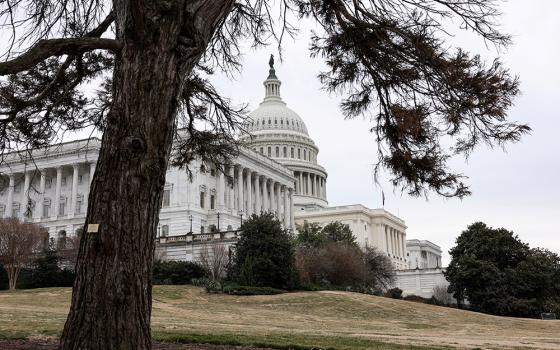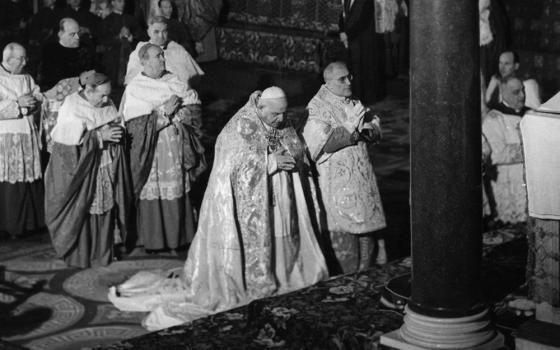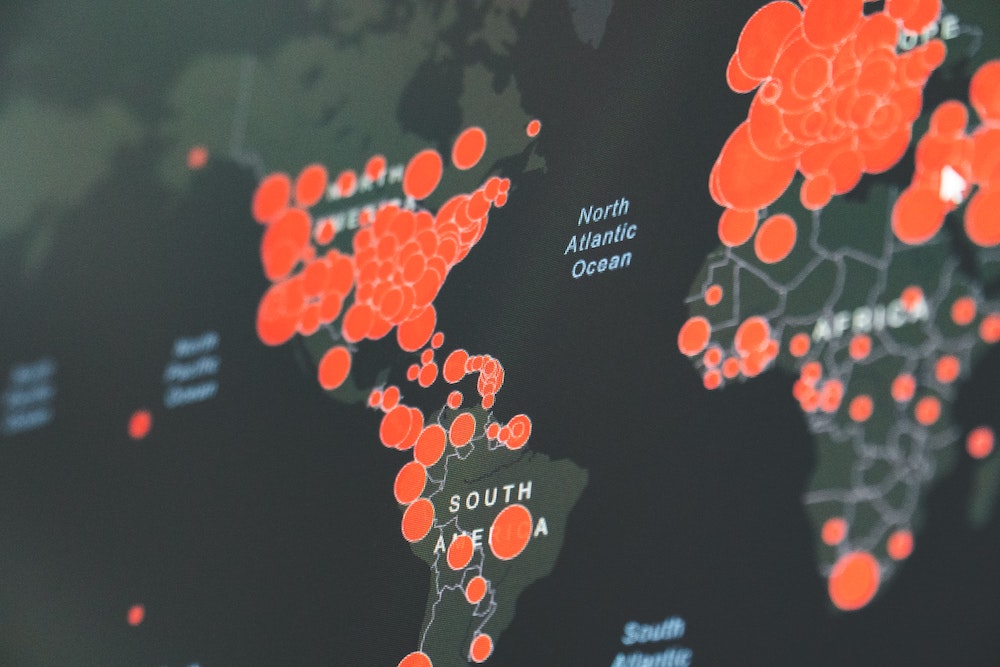
Like a blanket the virus wrapped around the Earth community and forced us to focus on these difficult realities; and as we did, we saw gaping wounds beneath the spread of the virus. (Unsplash/Martin Sanchez)
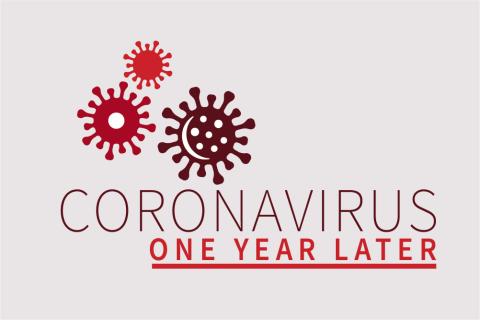
(NCR, GSR logo/Toni-Ann Ortiz)
Editors note: A column by Sr. Nancy Sylvester that ran Mar. 23, 2020, "What did you learn from the coronavirus pandemic," has been one of the most-read articles of Global Sisters Report. We invited her to reflect on the situation a year later.
In March of 2020, I reflected on the question: "What did you learn from the coronavirus pandemic?" In retrospect that was a bit early in the process for that question. However, I believe my conclusion for that reflection still holds true a year later.
My conclusion was in a form of a prayer:
Let us pray that we learn through this pandemic the stark realization that we are all connected; that when we face into our fears, we can transform them through love; and that we emerge from it committed to a new way of being and acting.
I never could have imagined what transpired these past 12 months and how it would challenge me. The implications of what it means in my life continue to deepen. And the question becomes what am I learning from the coronavirus pandemic?
I am learning that the stark realization that we are all connected is uncomfortable and challenging.
Each of us has experienced the pandemic differently, and yet we have all experienced it.
Whether one of our loved ones died or became very sick, or whether we were spared that grief, we could not escape the suffering of so many. The count became staggering as both the death toll and the number of those infected mounted. And it wasn't just in one city. It was throughout our country; and it wasn't just our country, it was throughout the world.
We couldn't escape the reports of those whose jobs were lost and for whom being at home brought added worry about paying bills, securing food and shelter, and the future. Still others were alone with an abusive partner, exacerbated by the lockdown. And still others were locked inside themselves — alone, desperate and depressed, relying on drugs to keep them company.
Like a blanket the virus wrapped around the Earth community and forced us to focus on these difficult realities; and as we did, we saw gaping wounds beneath the spread of the virus.
Advertisement
Although we were all potential victims, some of us were more so. The inequities of our health care system and our economic system were exposed through the disproportionate spread of the disease among our sisters and brothers of color who died and suffered at a far greater rate than white people.
The inequities of our international economic arrangements led to a disproportionate burden on many less-wealthy countries, which were unable to obtain vaccinations for their people. The economic toll of the lockdowns throughout the world exacerbated food shortages, increasing the number of children suffering from malnutrition. At so many levels, the tentacles of the virus extended and intertwined with various structures and systems — revealing a much greater sickness than simply COVID-19.
As often happens when one begins to treat a wound, other underlying conditions are brought to the surface. The experience of police brutality, long-suffered by our Black sisters and brothers, could no longer be contained. George Floyd became the icon which galvanized not only people of the United States but those in other countries, too, to take to the streets to proclaim that Black Lives Matter. Systemic racism demanded to be addressed.
The scab of white supremacy deeply imbedded in our history was beginning to be torn off, which roused a dormant group of our white supremacist sisters and brothers to strengthen their hold on their view of reality and raise their voices, claiming to be patriots protecting the values of the country.
To our great disbelief, during 2020 the leader of the U.S. — elected to care for the whole nation — denied the wounds, denied the illness and supported those who wanted to let the scab form again. The result was an unprecedented, organized attack on the U.S. Capitol and our democratic values, on Jan. 6, 2021.
In March of 2020, I never imagined all of this happening.
So today, I bring to prayer this stark and uncomfortable realization that we are all connected.
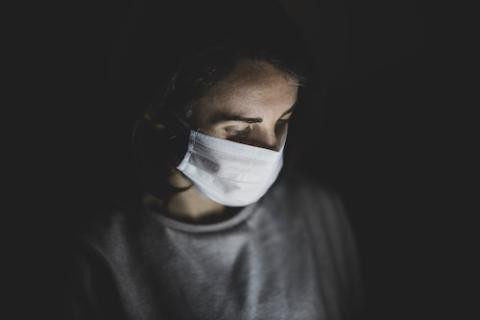
The Gospel message is that we are all one and need each other like the parts of a human body. (Unsplash/Engin Akyurt)
Everyone regardless of race, creed, gender, nationality, economic status, political persuasion — we are all connected in a web of life. Our species has evolved over time, and our DNA is more similar than different, as we learned from the human genome project.
But our Christian faith reveals a deeper level of connection: we are all part of the body of Christ. The Gospel message is that we are all one and need each other like the parts of a human body. The mystery of the Incarnation allows us to dare acknowledge our humanity and divinity. It is the commandment to love others as ourself.
If this is true, how do we make sense of a world gone awry? Of sisters and brothers who foment hate and perpetrate violence? Of the seeming arbitrariness that where one is born has significant influence on who one becomes?
God, the source of all being, awakened life and surrounds us with ongoing love. But we are the ones to fashion the culture, the society in which we live. We create the economic and political systems and structures that are to protect and insure life for all. When those structures fail us — as we are experiencing today — then they must be repaired. Repair means to restore to sound condition after damage or injury; to set right; to renew or refresh.
Whenever I begin my contemplative sitting, I consent to the working of Divine Mystery within me for my transformation and for the transformation of the world. Questions are emerging in me like: How I will live into the post-COVID-19 future with all that has been exposed? What is my responsibility as a privileged U.S. white woman religious in creating the space to repair? What do I believe I am entitled to? How do I hold on to it? Am I willing to give it up?
It is often said that power is never given up peacefully but must be taken. I want to challenge that assumption. I believe there are some of us benefiting from power, entitlement and privilege that can acknowledge it, let go of it and work with those struggling to repair our world so all can gain respect and access to basic human rights.
It will demand a healthy sense of self and a willingness to explore motives and beliefs. The very privilege I've experienced has brought me to this moment in my life. I cannot resent it nor do I want to feel guilty. But I know it is critical to become aware of my own blindness as to how my privilege takes away from someone else's basic rights. I know holding on to my way as normative will not open up the space for the necessary conversations and changes needed in the months and years to come.
Beginning to act in this way generates a whole lot of fears in me, and so I must bring them to prayer and transform them through love.
I believe this year has brought the whole Earth community to a stark realization. We cannot continue as we have. There is no going back. There is no "make America great again." The choice is either further destruction or transformation and breakthrough.
We must emerge from this pandemic committed to a new way of being and acting.
So once again I conclude with a prayer:
Let us pray that we learn through this pandemic the stark realization that we are all connected; that when we face into our fears, we can transform them through love; and that we emerge from it committed to a new way of being and acting.





